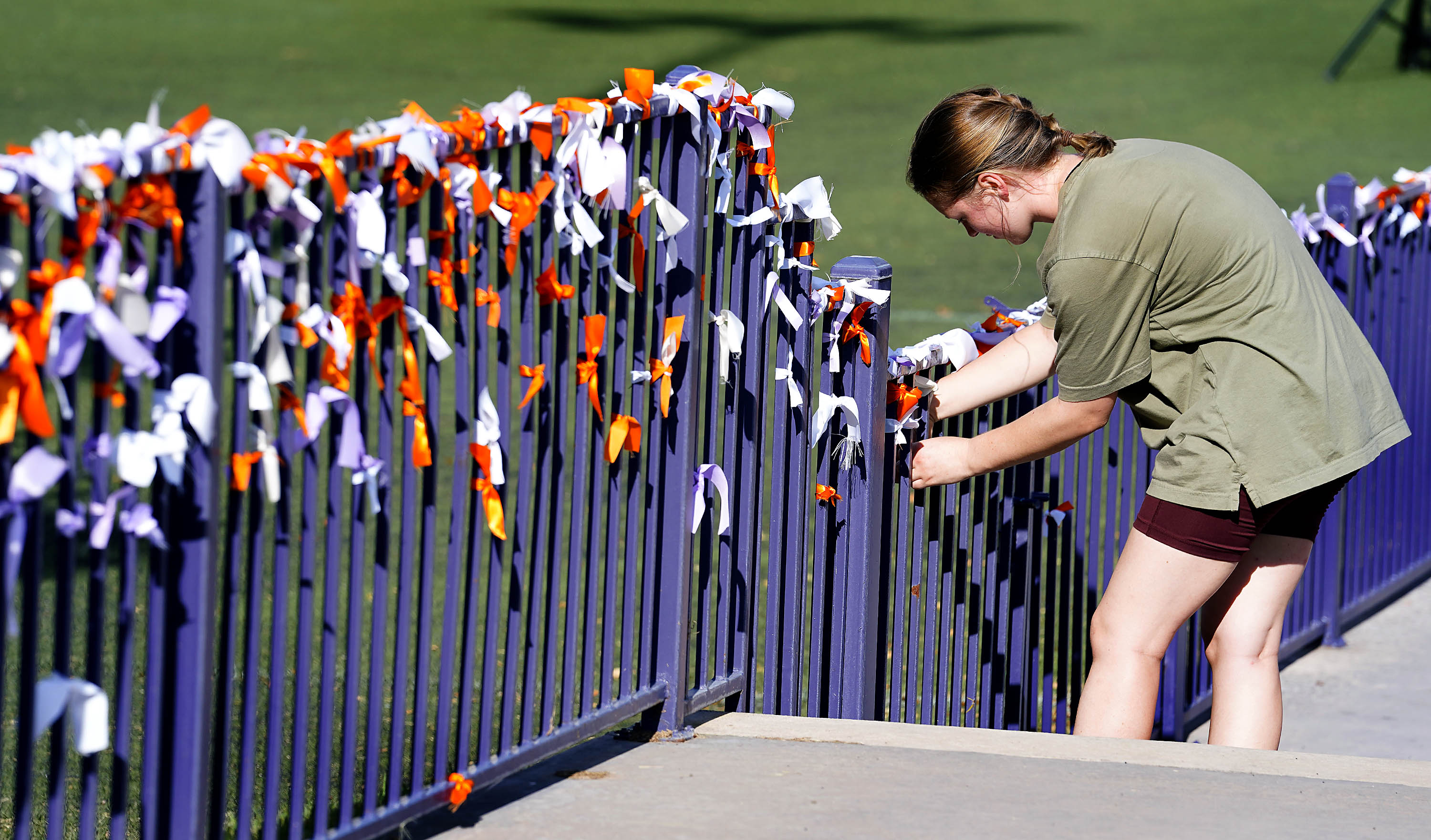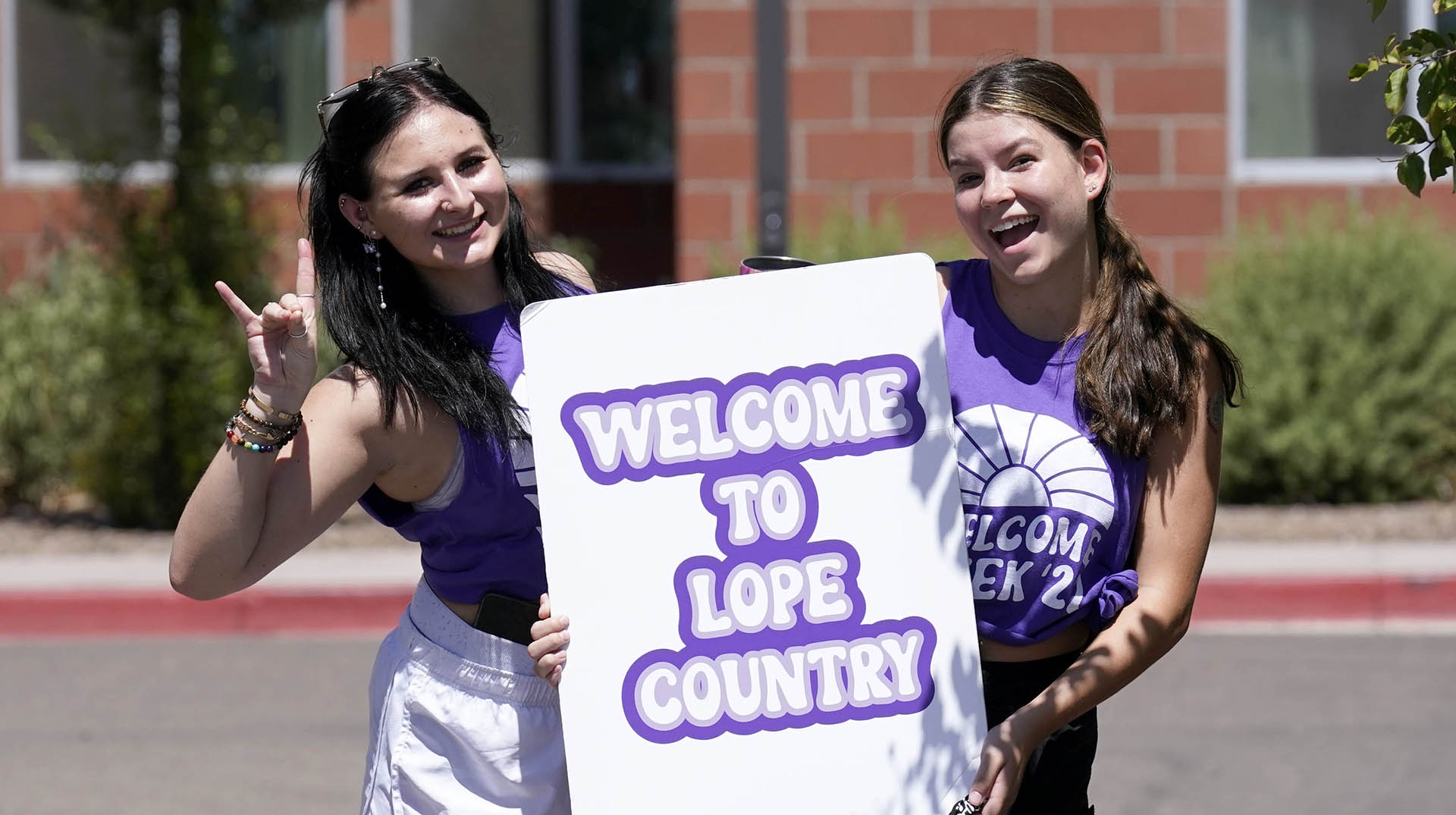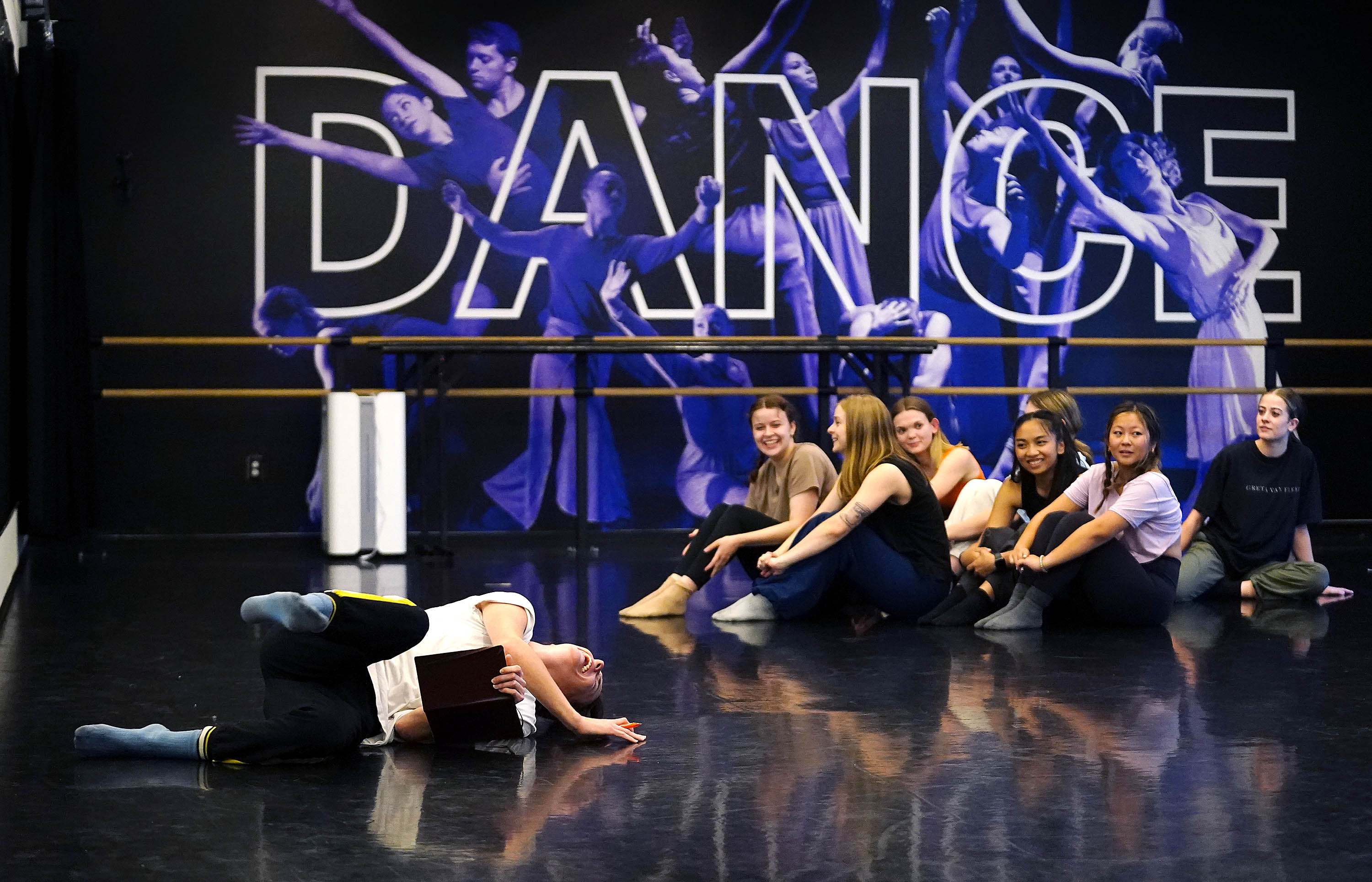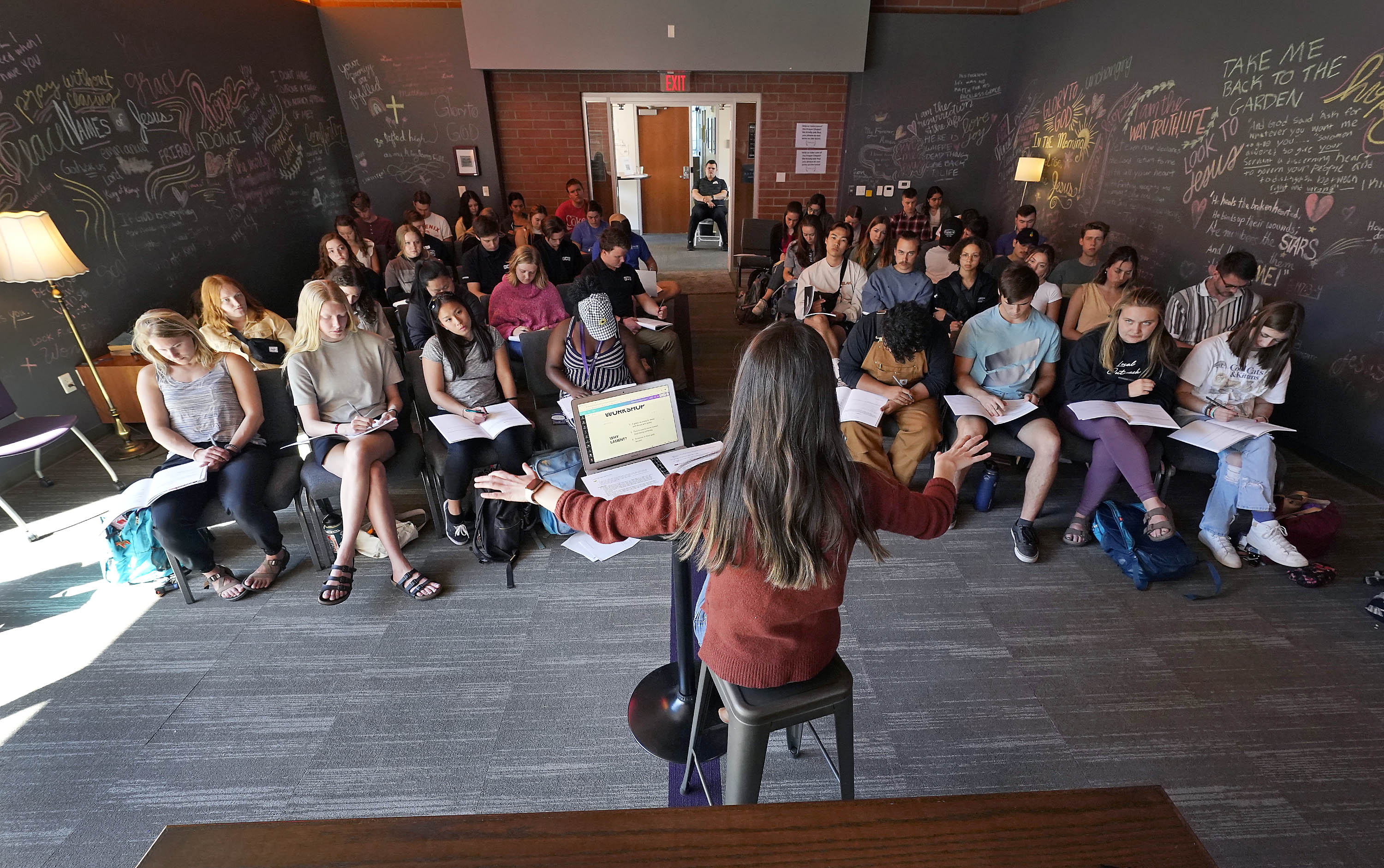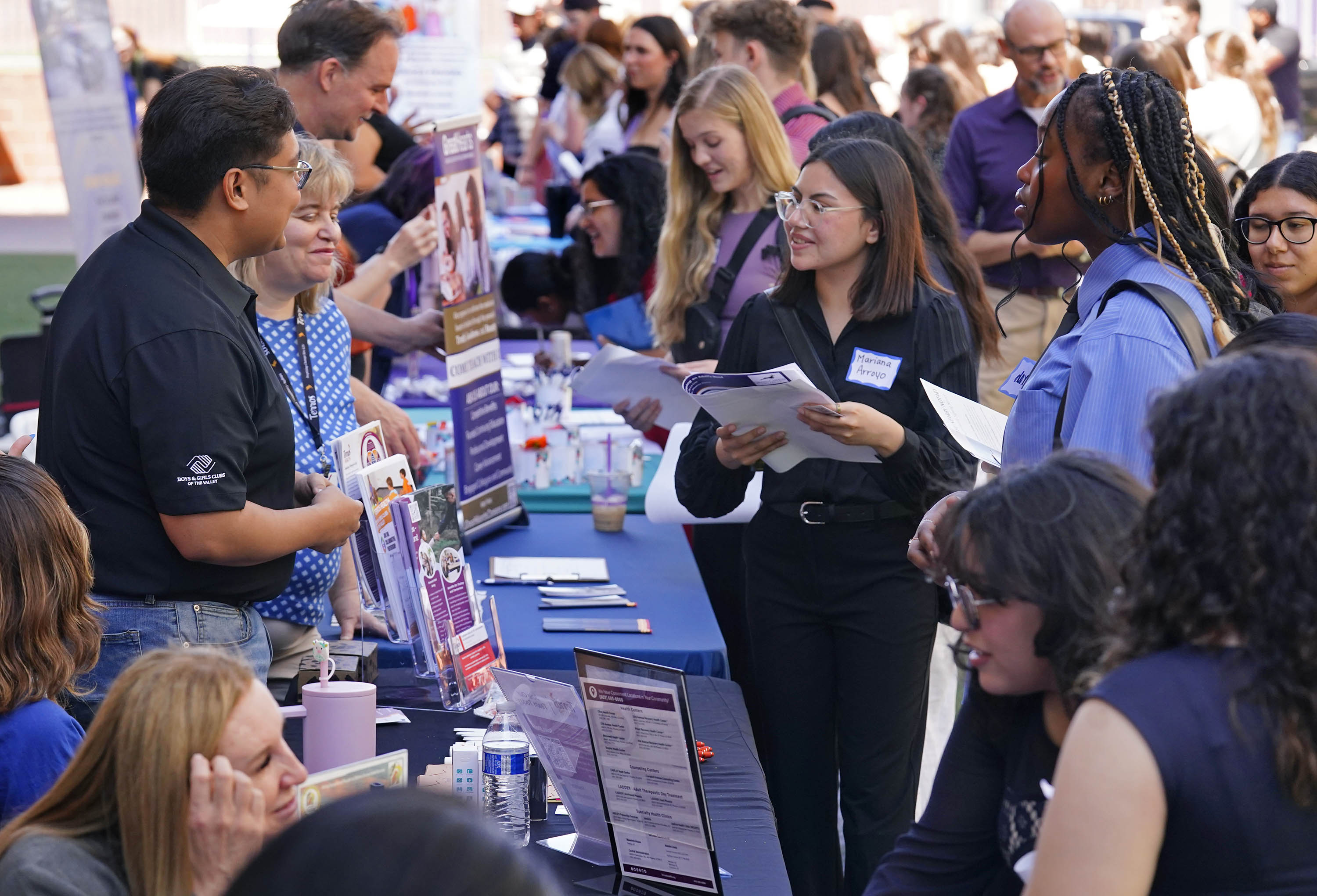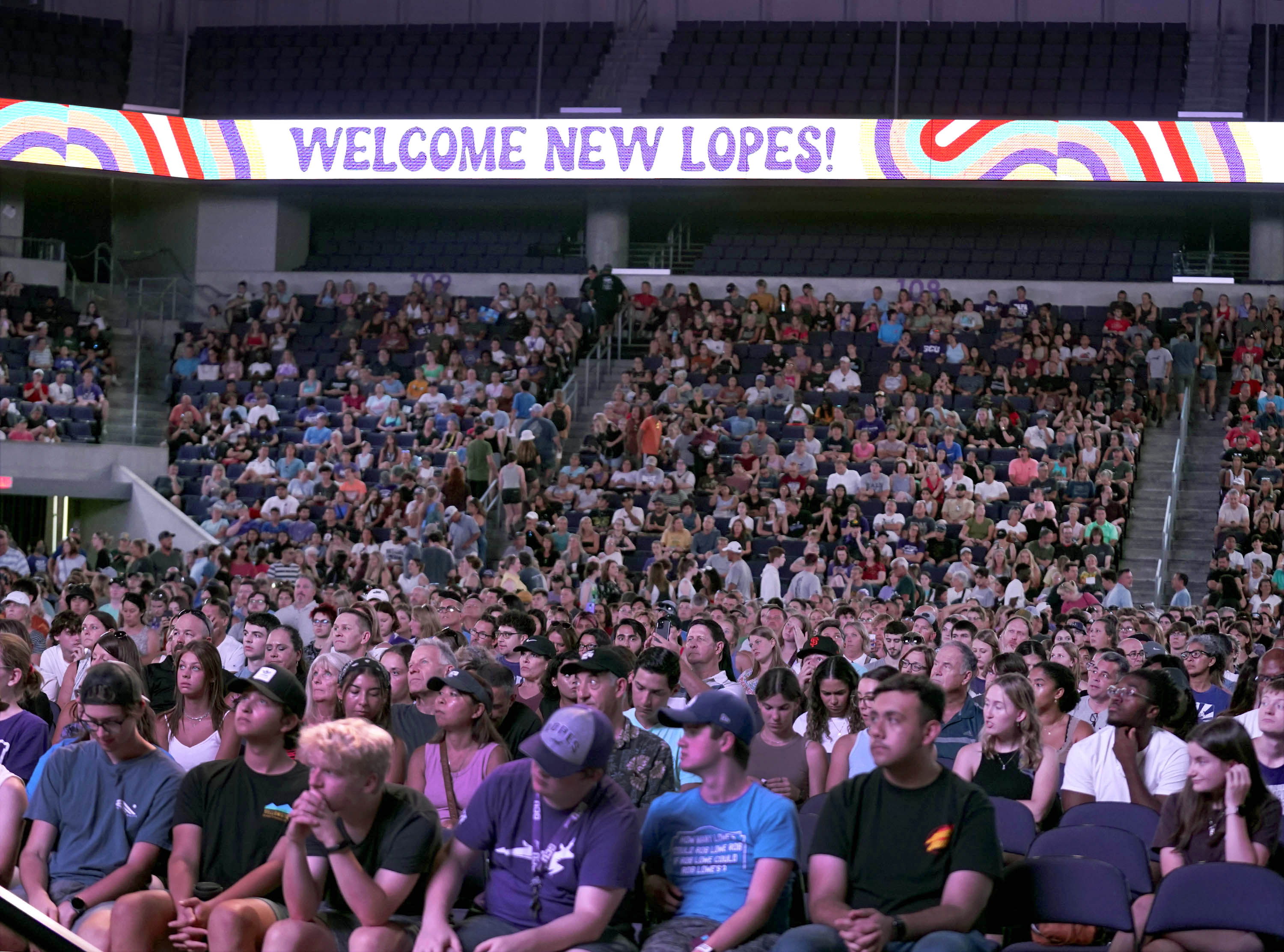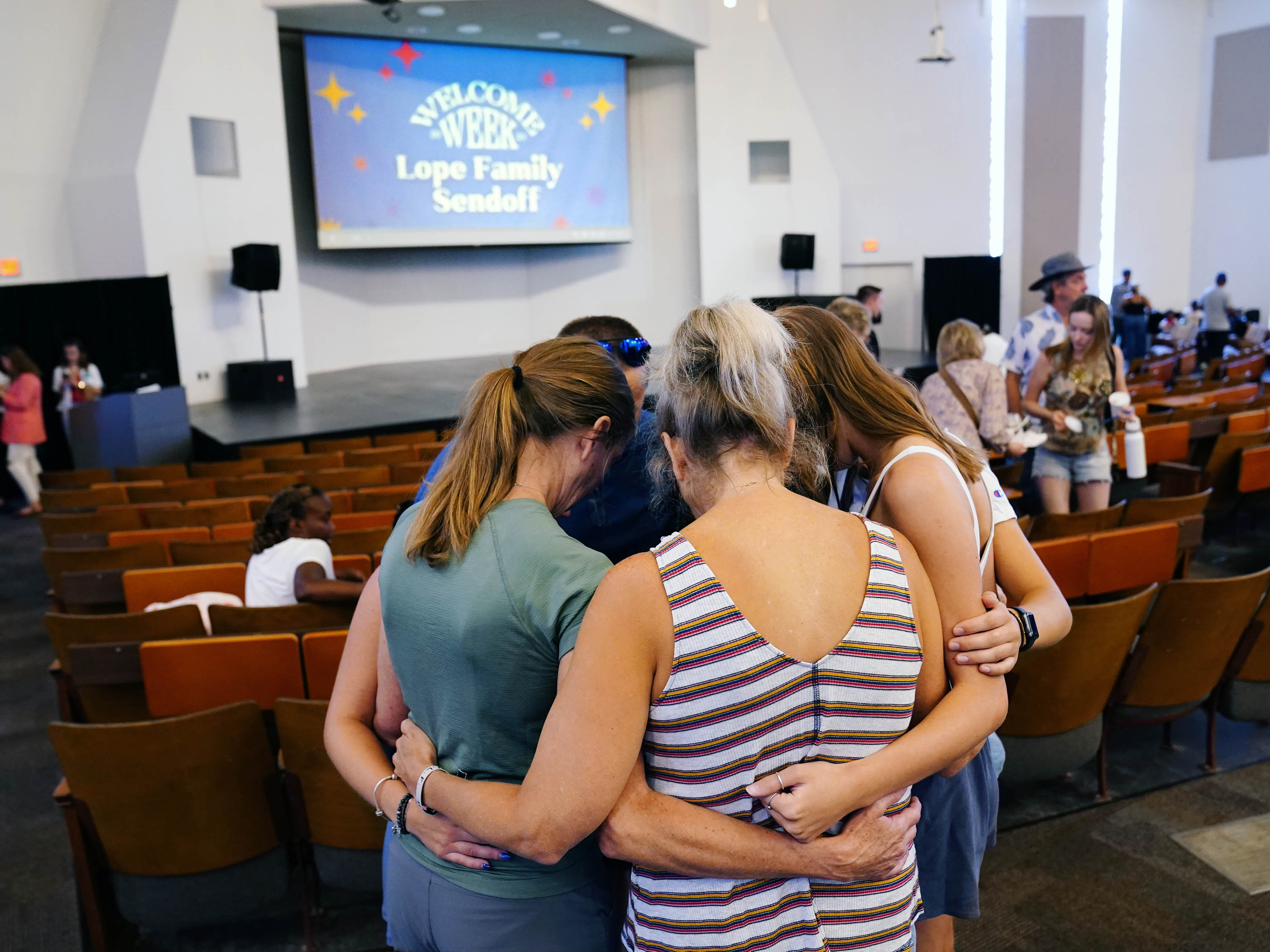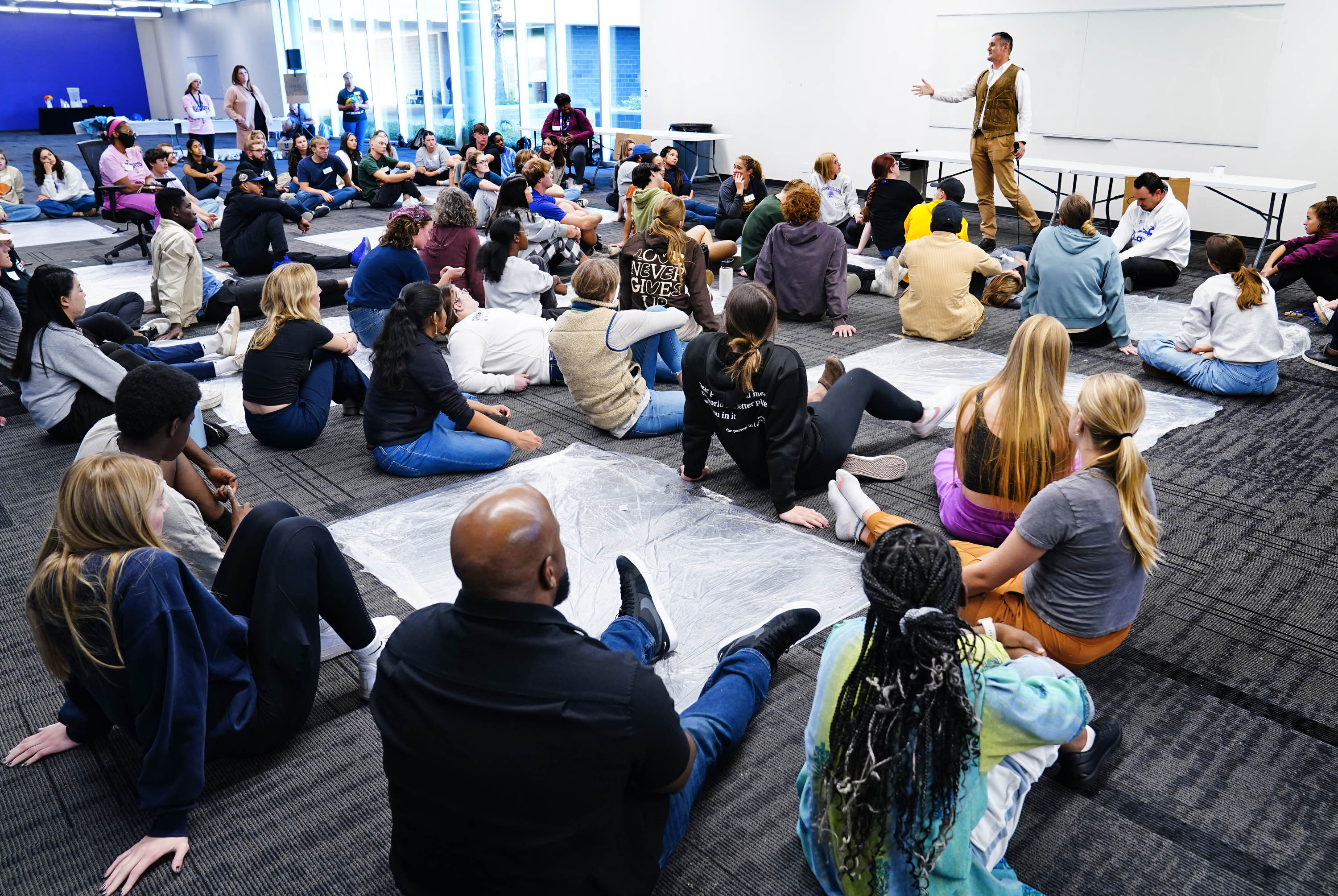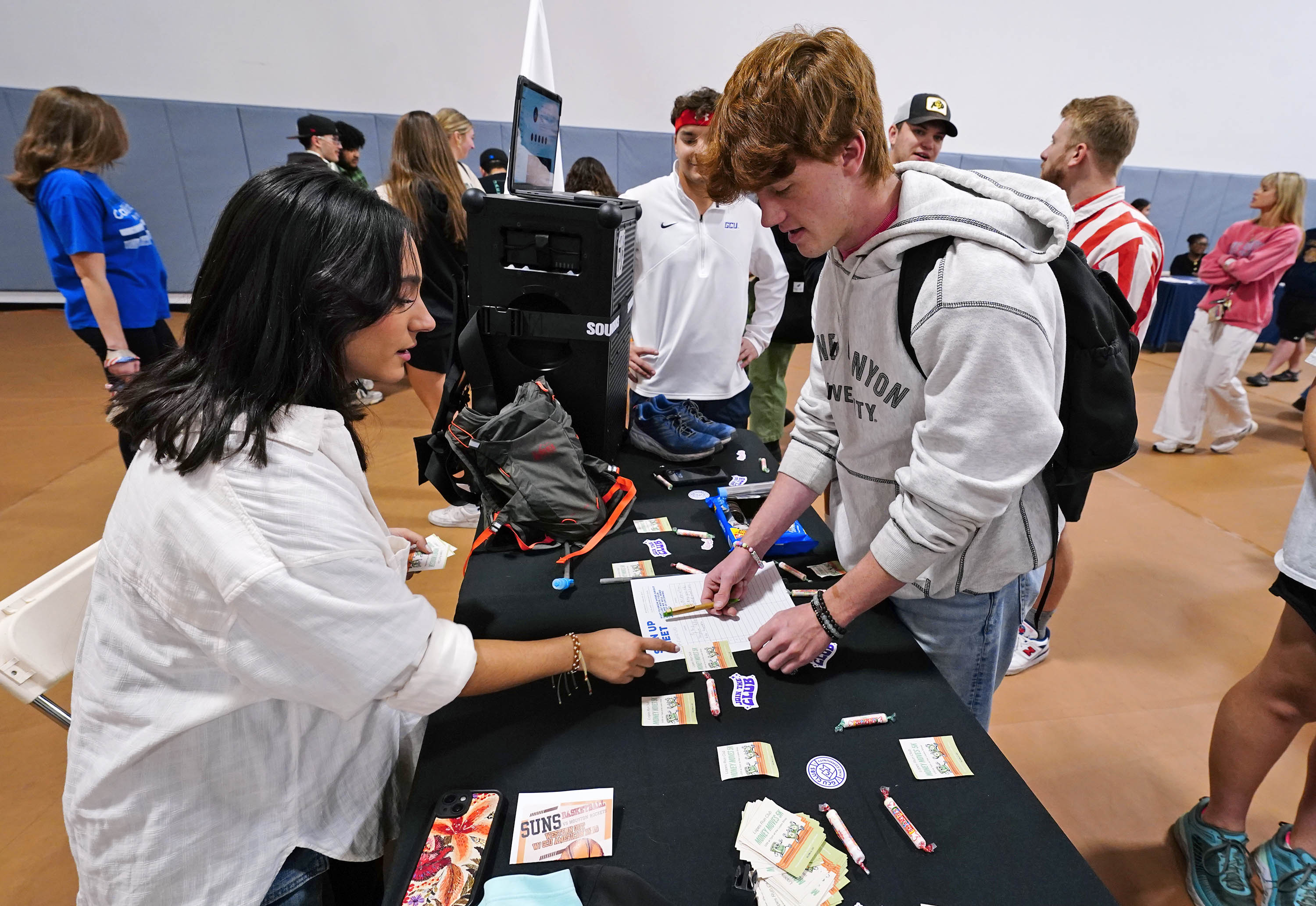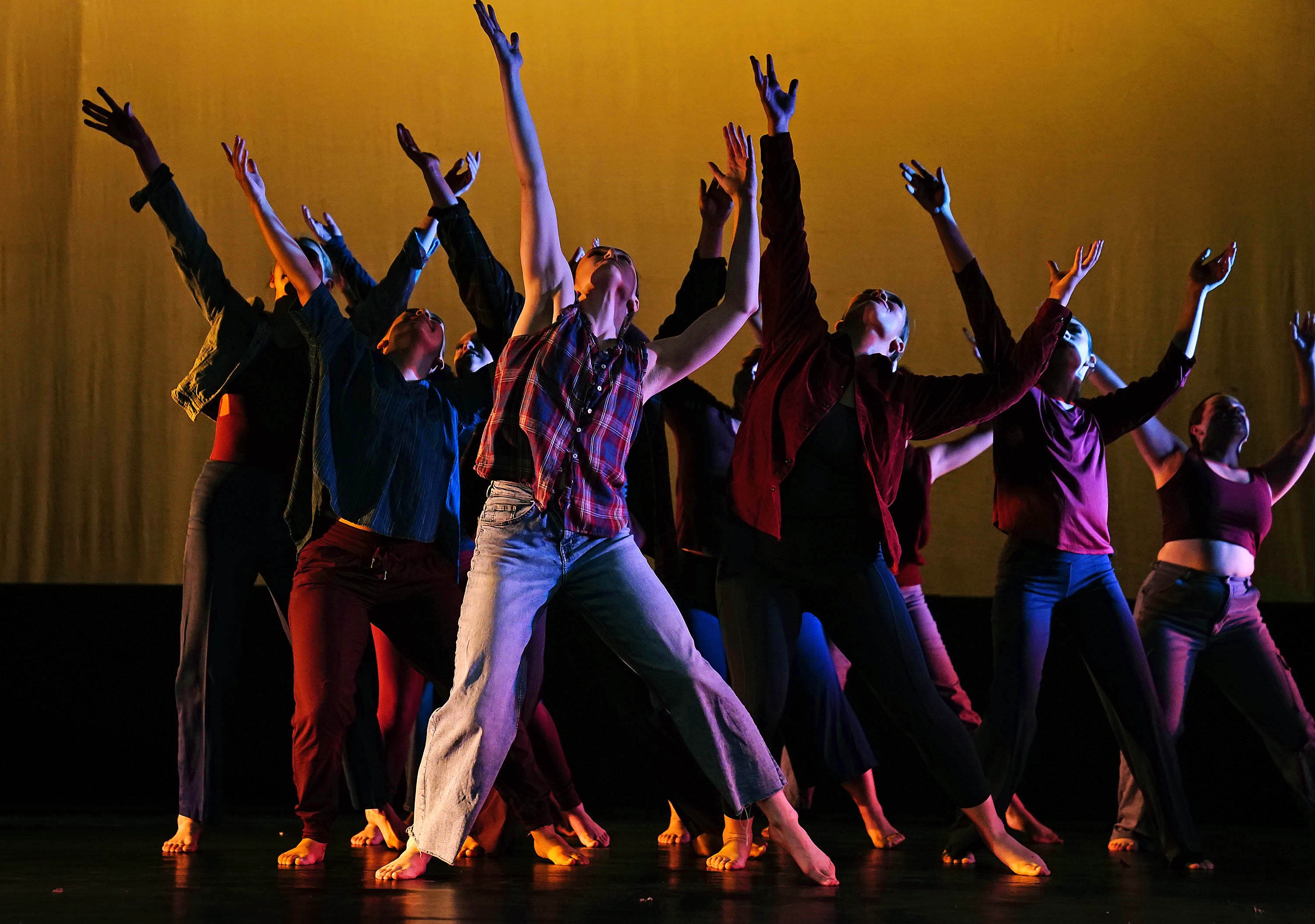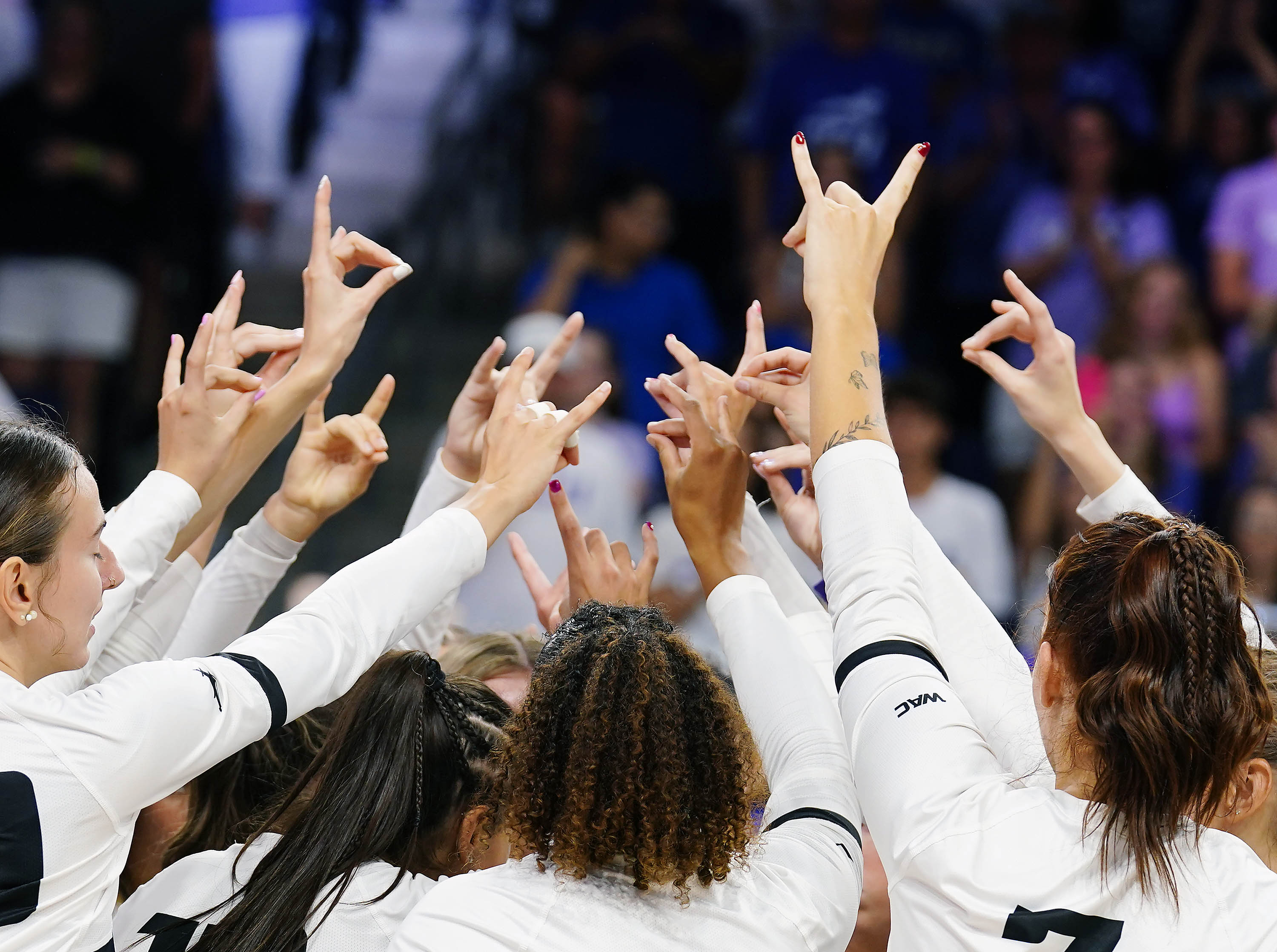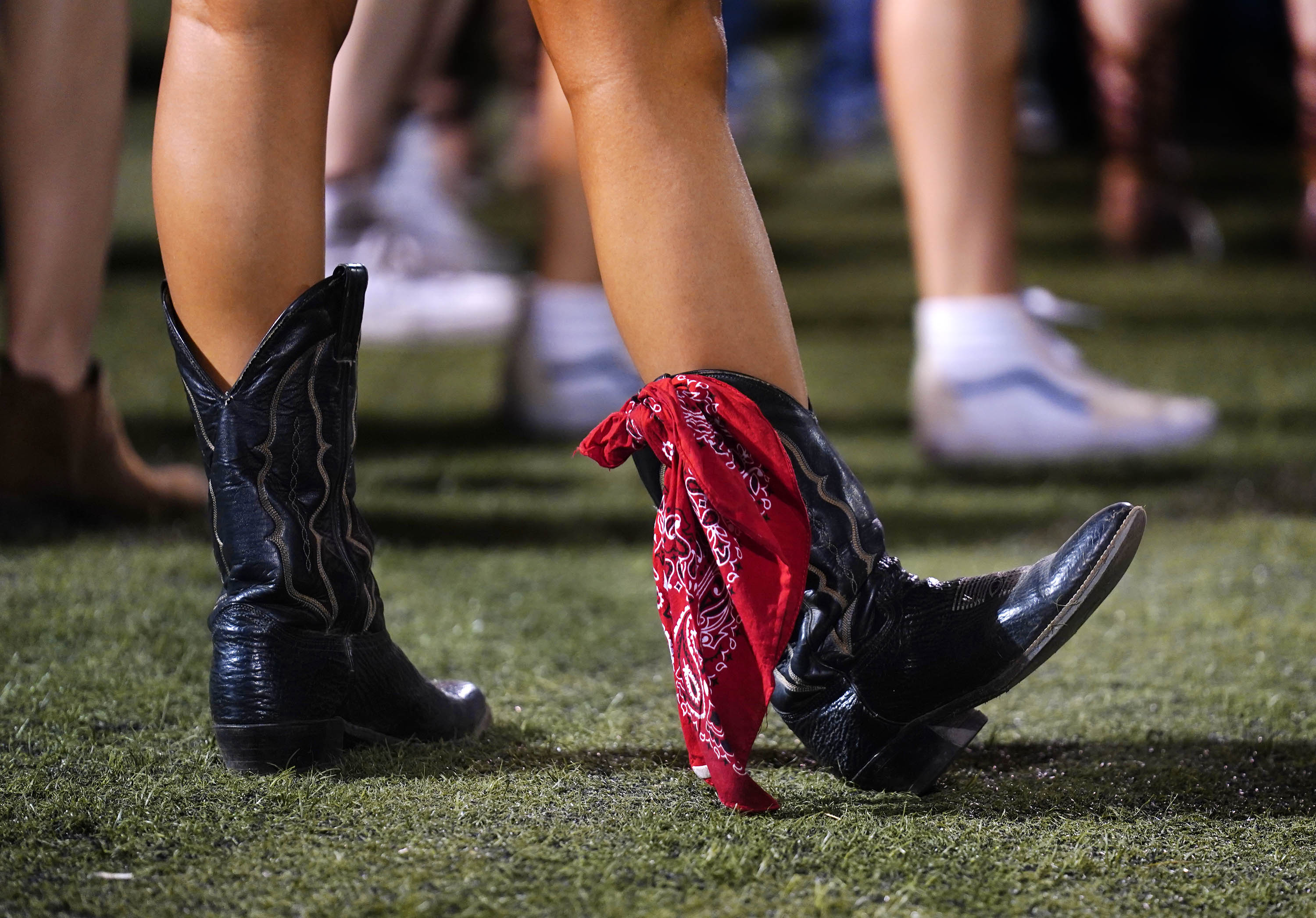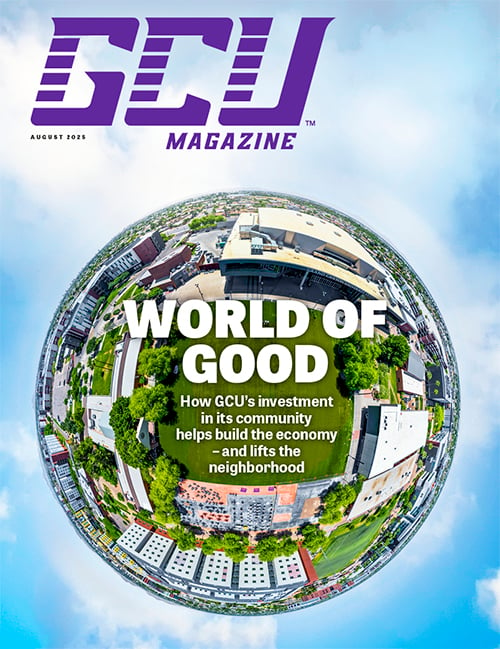By Rick Vacek
GCU News Bureau
The tendency is to think that the latest is the greatest or that today’s worst is a first. These days, that means that the only thing people can agree on is that we’ve never agreed less on, well, just about everything.
But that’s old news, Riccardo Stewart of Redemption Church in Tempe said Monday morning in his Chapel talk at Grand Canyon University Arena. When Paul wrote the book of Ephesians, the world was just as full of division – and it didn’t need social media to spread the derision.
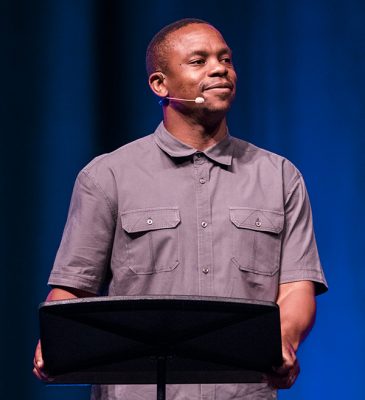
Chapter 2 of Ephesians reads like politics in America, with Jews and Gentiles replacing Democrats and Republicans. God authorized only one solution, Paul wrote, when he sent Jesus Christ to die for our sins:
“For He Himself is our peace, who has made the two groups one and has destroyed the barrier, the dividing wall of hostility, by setting aside in His flesh the law with its commands and regulations.
“His purpose was to create in Himself one new humanity out of the two, thus making peace, and in one body to reconcile both of them to God through the cross, by which He put to death their hostility. He came and preached peace to you who were far away and peace to those who were near. For through Him we both have access to the Father by one Spirit.
Consequently, you are no longer foreigners and strangers, but fellow citizens with God’s people and also members of His household, built on the foundation of the apostles and prophets, with Christ Jesus Himself as the chief cornerstone. In Him the whole building is joined together and rises to become a holy temple in the Lord. And in Him you too are being built together to become a dwelling in which God lives by His Spirit.”
Those ideas weren’t considered any more feasible 2,000 years ago than they are today. “The world was a bleak place when Paul wrote Ephesians,” Stewart said.
Stewart found it to be just as bleak when he became a Christian a few years ago – bleak in churches that were uniformly divided along racial and ethnic lines.
“Every environment I went into with believers, it was never diverse,” he said.
So he decided that it would be his calling to try to bring people together, just as the Bible commands. He knows firsthand how difficult that is – he saw it on social media when members of his congregation would lob verbal bombshells at each other during the 2016 presidential campaign. It got so bad, he swore off social media and said he hasn’t used it since.
“I couldn’t show up on Sunday and see people who love Jesus (be) together,” he said, “and somehow on the surface level (they) can sit in seats or pews, worship God and never have any sense of reconciliation.”
It’s that reconciliation that Jesus called on Christians to spread, Stewart told his GCU Arena audience. They can do that by looking at the Gospel both vertically and horizontally.
God has made the vertical part clear and straightforward. He sent His Son to die for us and loves us unconditionally, like a parent, without looking at performance.
The horizontal part is up to us.
“Reconciliation and unity – that’s what God is about,” Stewart said. “We are saved by grace, and our actions should show it.”
Still, we struggle.
“I just don’t think we fully understand the breadth and the deepness of the Gospel of Jesus Christ,” Stewart said. “We let our preferences go far beyond the promises of God. … God’s promise to us is never that He saves us individually so we can be with people just like us.”
We all play a role in ending the divisiveness, Stewart urged listeners, and said we must learn from Jesus’ example and come together as Christians. Not Democrats. Not Republicans. Not progressives. Not conservatives. One church nation, undivided.
“He called you to be ministers of reconciliation, and not just you, but me – all of His people,” Stewart said. “If we can’t racially and politically give the culture around us a different narrative, it may just be that we don’t really follow the Jesus of the Bible of which we read.”
And he closed with this thought:
“The world can’t know Jesus unless the people of Jesus are actually living like Jesus. And we’re not talking morality, right? It’s not just by being a good person. It’s actually participating in this poem that God has called us into, and that poem is actually being able to sit down with your brother and sister in Christ who is wildly different than you politically, wildly different. …
“We know it’s difficult and we know it’s messy because you know what our example is? It’s a bloody cross and an empty tomb.”
● Chapel replay.
● Next Monday’s Chapel: Worship session (final Chapel of academic year)
Contact Rick Vacek at (602) 639-8203 or rick.vacek@gcu.edu.



